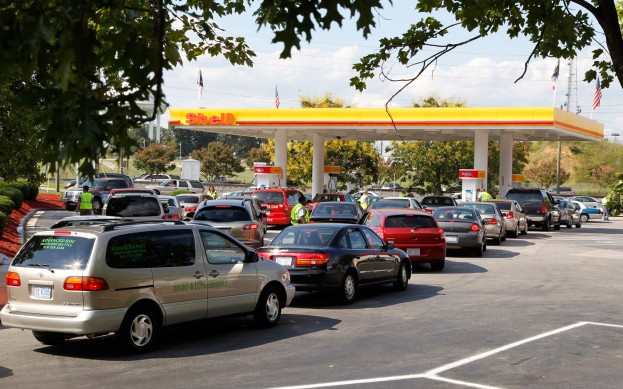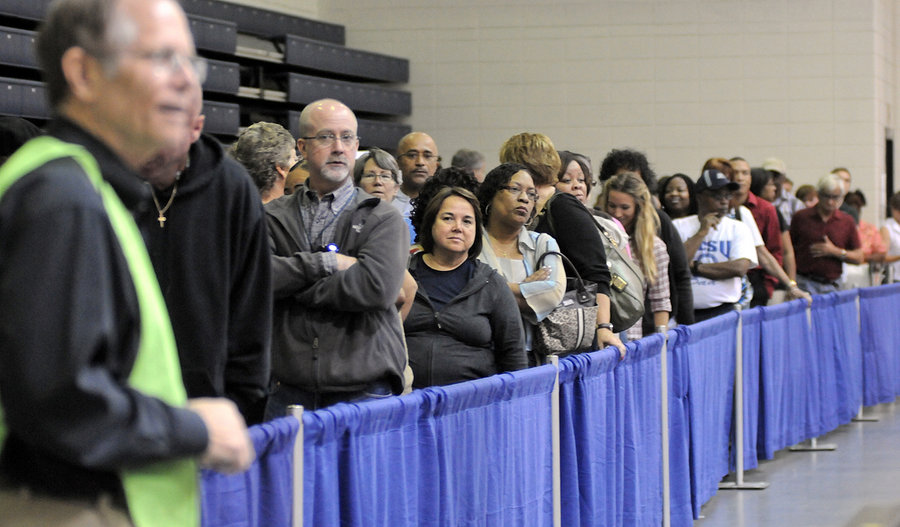Whether it’s a pair of Nikes, an iPhone, or a mega-popular book, Americans are willing to wait for a product if they think it’s worth it. And most of the time, we’re willing to wait in an orderly fashion.
On Tuesday, NPR published a topical piece on waiting in line, titled “Pumps and Polls: Why Americans Wait in Line.” The article dissects the social standards of waiting, tying them to two major current events on the minds of most Americans at this moment – Hurricane Sandy and the Presidential Election.
Although some people believe that we actually enjoy waiting in line, there are definite rules to this waiting game we play.
The first and most important rule is first come, first served. It’s an unwritten law, really, obeyed and followed much more than many written laws. It’s something we’re taught from a very young age. Just think of how many times you’ve heard a mother tell their child “You wait your turn,” or “(s)he was there first!”
Although this rule is followed in most every case, there are situations where the golden rule of waiting is ignored and violated. For instance, limited availability will trump FCFS.
Take disasters, for example. When there’s impending doom, FCFS is no longer applicable. People want gas, water, non-perishable foods, etc. They need these things and they’ll do whatever they can to get them. It’s a self-serving act. Thankfully with Sandy, we didn’t see too much of this. In most affected areas, people queued peacefully at gas stations and grocery marts, although there were a few incidents where tensions were high.
Waiting to vote on the other hand – “well they won’t run out of ballots,” says David Gibson, a lecturer in Sociology at Princeton University. And thus, the Golden rule will certainly stand. Gibson also speculates that voting is about morality, “a civic-minded act,” he calls it. The morality of voting influences the morality of waiting.
At the very same time, the mere violation of FCFS can cause what Dick Larson calls “queue rage,” or a line full of unhappy waiters. Larson is an engineering systems professor at the Massachusetts Institute of Technology, and he believes it’s about fairness.
This is partially the reason why people use queueing equipment. With the proper crowd flow elements, customers will never wonder where the line ends or begins. Thus, the first that come will be the first served.
*Much of the information in this article was taken from a piece published on npr.org, entitled “Pumps and Polls: Why Americans Wait in Lines” written by Linton Weeks.


